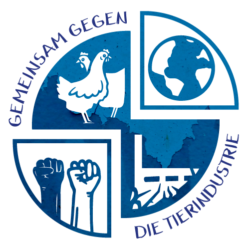“to be aware: to be aware, to inform yourself, to be sensitized to certain issues.”
We hope that the alliance process and jointly planned activities will be a wonderful experience for everyone and that everyone can feel as comfortable as possible. Maybe this is utopic – but very desirable. Feeling good can only work for everyone, if we treat each other with care and respect. This includes sensitivity to our own behaviour in respect to other people. Please be aware of your own physical and emotional limits, as well as those of the other participants. Make sure that these limits are respected! If a (personal) boundary is violated and the affected person wants to be supported, they can contact the awareness team.
Awareness is a concept that opposes any form of violation of boundarys, violence and discrimination, e.g. through sexist, racist, ableistic, homo- or transphobic actions and attitudes.
Racism, sexism, homo- and transophobia and any form of discrimination are not tolerated in the alliance and in our joint activities. Therefore, we ask you to treat each other with care and respect and to be open for the positions of others. Discriminatory and violating behaviour will be clearly identified as such. It will be resolutely opposed and those affected will be supported.
Discriminatory behaviour is part of our reality; although we do not want to, we all keep violating other people. This happens on the basis of our privileges and socialization. To overcome this, we want to acknowledge and react positively to criticism in order to change together. Often different feelings and points of view are mixed up, so that situations can become complex – we also try to perceive this and act accordingly.
The Awareness Team’s primary task is to be approachable for any affected person; to stand by him/her and to support him/her. A supporting person can also be helpful for the affected person, but this cannot be provided by the awareness group. For the support of the affected person, a safe-place will be provided. Here the affected person finds someone listening to his/her perspective of the critical situation. Here the affected person is not questioned or judged, nor he/she is
forced to get in contact with the violating person. The task of the awareness team includes to create a setting in which an affected person feels comfortable, can come to rest and his or her self-esteem gets rebuild. It is about overcoming the feeling of powerlessness and conveying that personal boundarys – no matter where they lie – are completely okay.
We respect the self-defined inner knowledge of the affected person. That means we do not question that the person has experienced a situation in which his or her personal boundary was violated. We are aware that the perception of the person’s experience does not have to be shared by everyone necessarily. It is not about judging actions or motivations. It is more a question of being able to name an action as cross-boundary.
We do not equate self-defined inner knowledge with power of action over others. The fact that every person has the right to name his or her own perception of what happened does not mean that we want to leave it up to the person concerned to determine how we deal with the situation. In principle, however, we are biased, i.e. we stand beside the affected person and try to act in his or her interest.
We understand advocacy as an inner attitude that arises from the belief that oppression and domination structurally exist in our society and affect interpersonal relations. This may play a role in the situation, not necessarily people affected are marginalised. We believe that affected persons know best what they need. We want to support them, as long as our own personal limits are respected. In the event of boundary violations that exceed the team’s scope for action, it is their task to get professional help.
During our alliance meetings and our joint actions there is always an awareness team who can be approached and helps in dealing with uncomfortable situations. We will organize safe-spaces during the meetings and in our joint activities.
We hope for a solidary community without discrimination and violence. We think everyone is responsible to make this happen!
You can contact us via: awareness (at) gemeinsam-gegen-die-tierindustrie.org (you can find our public PGP here).
Additionally, FLINT* (Women, Lesbians, Inter, Non-binary, Trans)* people can contact us at flinta-awareness (at) gemeinsam-gegen-die-tierindustrie.org, if possible encrypted. This email address is managed solely by FLINT* persons. The PGP-key can be found here.
Glossary
We recommend this glossary to explain some of the terms used: https://queer-lexikon.net/glossar/
